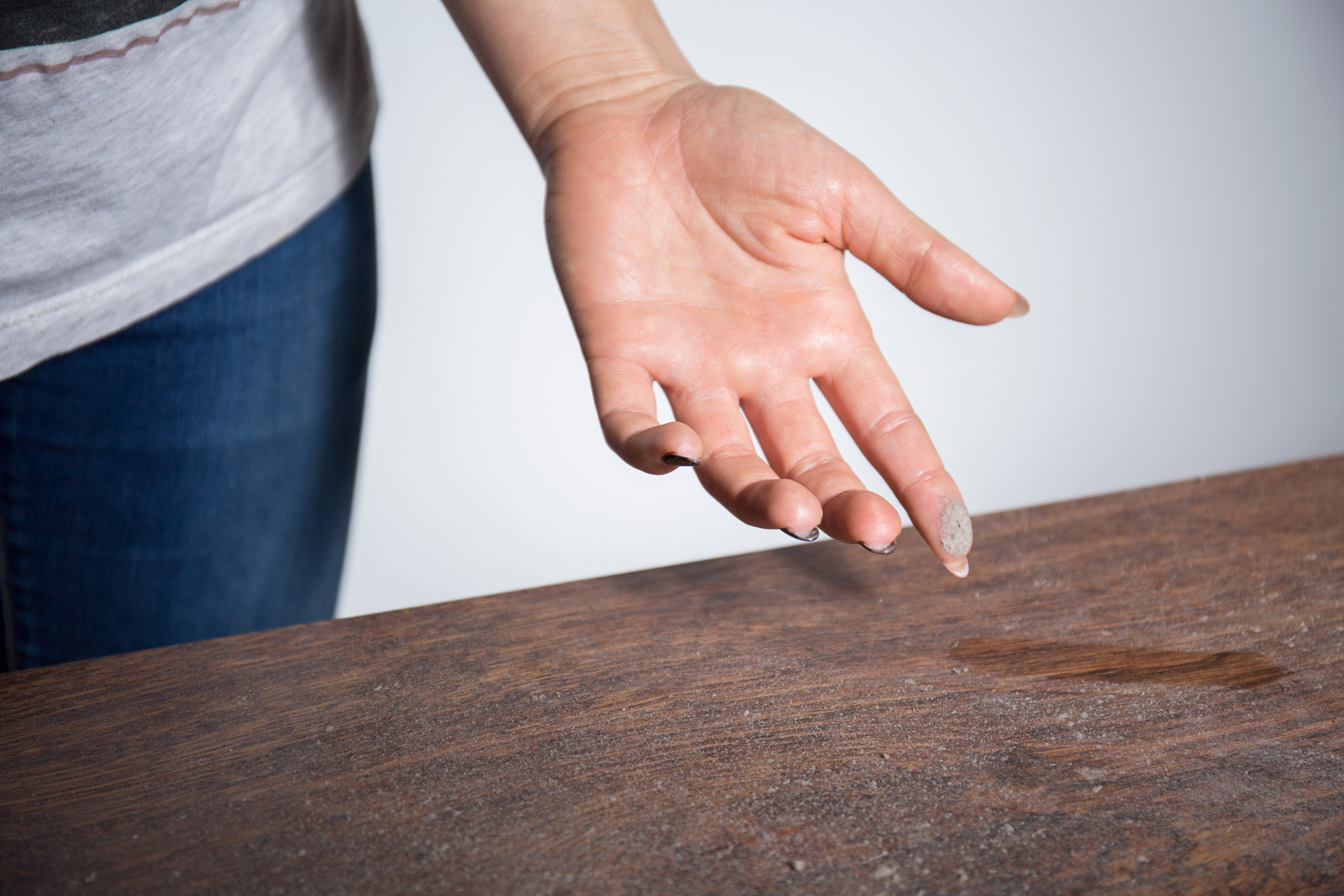Dust is literally everywhere and everyone is exposed to it in various ways throughout their day. The human body has great defense mechanisms to help us combat the problems that dust can cause - but that’s not always enough. The health effects depend on the size of particles and where they come from. It’s important to take steps to mitigate the negative impacts of dust in your environment.
What is Dust?
Dust is made of fine particles of solid matter. Dust can be found in the atmosphere from things as simple as soil being lifted by the wind or as complex as volcanic eruptions. Inside your home or other buildings, dust is composed of dead skin cells and other matter like plant pollen, human hair, animal fur, textile fibers, paper fibers, and many other materials. There is a common misconception that dust is mainly dead skin cells, however, those typically slough off while bathing. The truth is that while dead skin cells do make up a portion of dust, a majority of the particles come from outside your home. That makes it even more important to try to control how much dust you're exposed to.
Dust and Your Health
Since dust particles are so small, humans breathe them in a lot. Depending on many factors, that may create a reaction that could be minor or significant. Studies have found that babies and people with lung disorders are particularly vulnerable to problems with dust particles. Dust can act as a “fomite”, which potentially carries viruses or other infectants.
Furthermore, while household dust is generally harmless, some forms can be dangerous. For example, in a recent episode, tiny particles of sand, wood, and asbestos contributed to 12,000 deaths from lung disease in the UK, according to the Health and Safety Executive. Prolonged exposure to harmful particles can increase the risk of disease and other disorders. This is particularly dangerous in workplaces, and employers are responsible for what happens to their employees within their building.
Dust can also just be a nuisance. Even if it doesn’t cause any serious health issues, it can irritate the eyes, nose, and throat. It simply makes breathing less comfortable, not to mention it makes your home and everything inside it feel unclean (and appear that way too). The problem with dust is that you never truly know what’s in it, and that means it could carry particles that are a problem for our bodies.
How to Protect Your Air from Harmful Dust
Luckily, there’s plenty of measures you can take to protect yourself and others in your building. Most people love fresh air, but if you’re in an environment with lots of pollution or environmental disruption (such as during the recent wildfires), you should keep your windows and doors closed as much as possible. Try to keep a tidy area, and dust surfaces, and sweep floors as much as possible. You should also try to avoid prolonged or heavy exertion in areas of high dust pollution. Experts suggest doing your best to avoid exposure to outdoor dust clouds when you can see them.
Air conditioners are not likely to help clear the air, but they shouldn’t make it worse. To really make an impact, you need a high-quality air purifier. Most air purifiers are designed to remove larger dust particles from the air. You’ve probably heard of HEPA filters, which are designed to trap particles in the air. These are a start in your battle against dust.
Some air purifiers take things a step further, and these are your best bet when it comes to protecting both your environment and your health. Medify air purifiers remove 99.9% of particles down to 0.1% microns. That means they remove even the tiniest particles that most air purifiers miss. Medify Air Purifiers use True HEPA H13 filters with three levels of filtration to catch and remove allergens, pet dander, and more.
We want to help as many people as possible to breathe clean air. Give us a call and we can support you in finding an air purifier or air purifier bundle that meets your unique needs, based on your specific space and environment.

